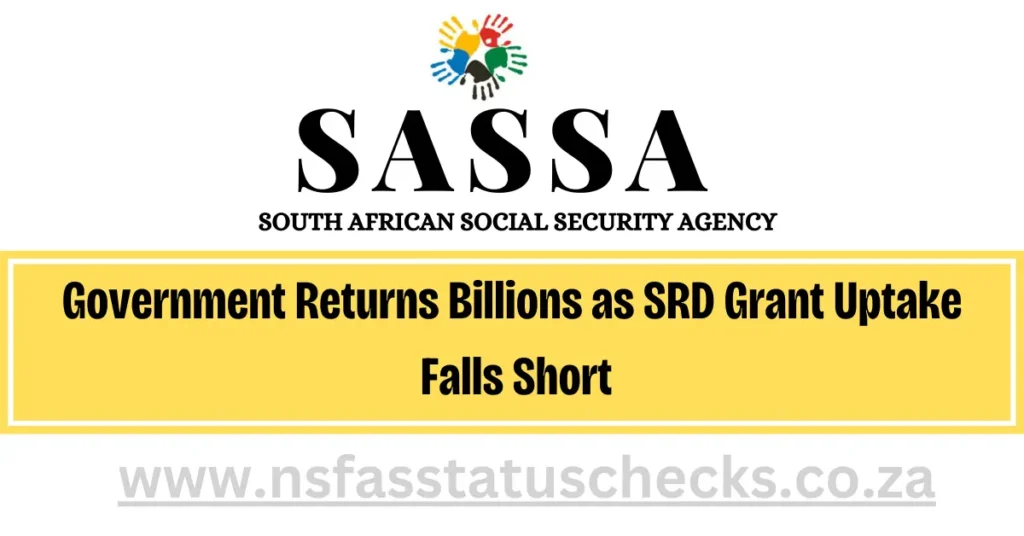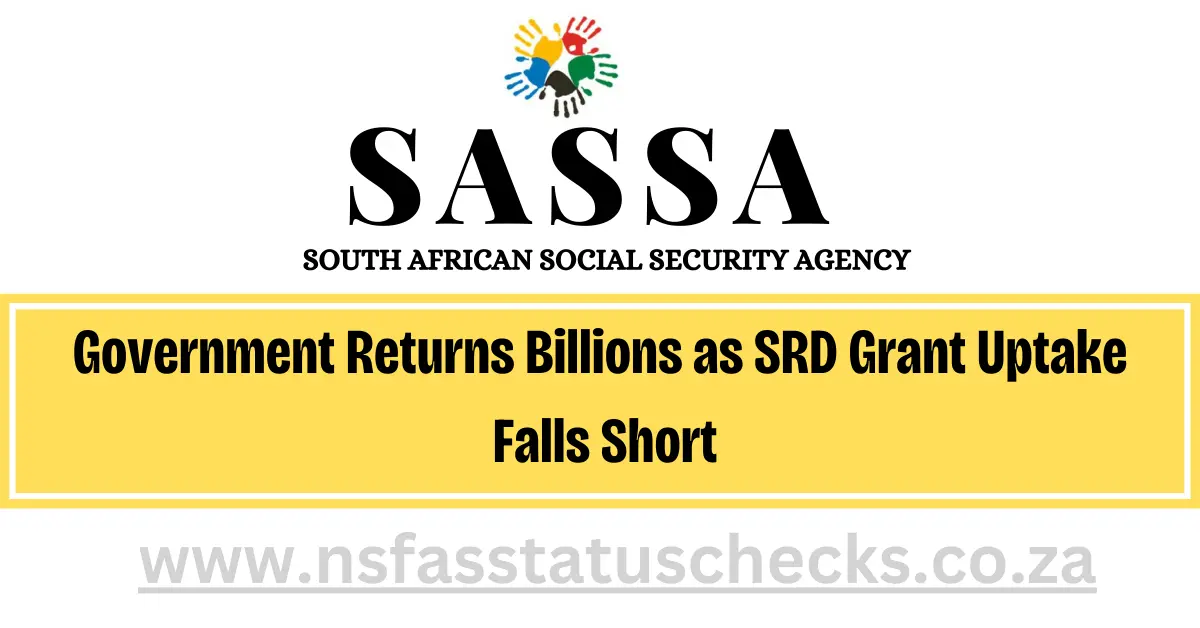The government recently announced that it would be returning billions of dollars allocated for the SRD grant as the uptake fell short of expectations. The SRD grant, which was intended to provide financial relief to those affected by the economic impacts of the COVID-19 pandemic, has faced challenges in reaching its target audience. This article explores the reasons behind the low uptake of the SRD grant, the impact of this low uptake, and the government’s response to the situation.

Overview of the SRD Grant
The SRD grant was introduced as part of the government’s efforts to mitigate the economic impact of the COVID-19 pandemic on vulnerable South Africans. The grant was targeted at individuals who were unemployed and did not receive any other form of social assistance. Eligible individuals were meant to receive a monthly payment of R350 to help them meet their basic needs during the pandemic.
Reasons for the Low Uptake
Several factors have contributed to the low uptake of the SRD grant. One of the main reasons is a lack of awareness about the grant among the target population. Many eligible individuals were unaware that they qualified for the grant or were unsure about how to apply for it. This lack of awareness has been compounded by the complex eligibility criteria for the grant, which have made it difficult for some individuals to determine whether they qualify for assistance.
Impact of the Low Uptake
The low uptake of the SRD grant has had a significant impact on the intended beneficiaries. Many vulnerable individuals who could have benefited from the grant have been left without the financial support they desperately need. This has exacerbated poverty and food insecurity among this population, leading to a worsening of their overall well-being.
Government’s Response
In response to the low uptake of the SRD grant, the government has announced that it will be returning billions of dollars allocated for the grant. The government has acknowledged that the low uptake is a result of various challenges, including the lack of awareness about the grant and the complexity of the application process. In addition to returning the unspent funds, the government has also committed to addressing these challenges to ensure that future relief efforts are more effective. In April 2024, the SASSA grant increases will be announced. Make sure you don’t miss it.
Conclusion
The low uptake of the SRD grant highlights the challenges faced by governments in providing financial relief to vulnerable populations during times of crisis. While the government’s decision to return the unspent funds is a step in the right direction, more needs to be done to ensure that relief efforts reach those who need them most. This includes improving awareness about relief programs, simplifying the application process, and addressing the underlying causes of poverty and food insecurity.
FAQs
Why did the government introduce the SRD grant?
The government introduced the SRD grant to provide financial relief to individuals affected by the economic impacts of the COVID-19 pandemic.
Who was eligible for the SRD grant?
The SRD grant was targeted at individuals who were unemployed and did not receive any other form of social assistance.
What was the monthly payment for the SRD grant?
Eligible individuals were meant to receive a monthly payment of R350.
What were some of the challenges faced by the SRD grant program?
Some of the challenges faced by the SRD grant program included a lack of awareness about the grant, complex eligibility criteria, and difficulties in the application process.
What is the government doing to address the low uptake of the SRD grant?
The government has announced that it will be returning billions of dollars allocated for the grant and has committed to addressing the challenges that have contributed to the low uptake.
